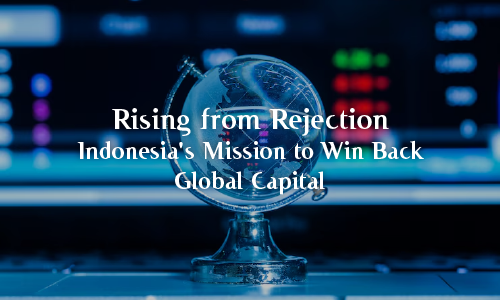
Summary: The year 2025 has witnessed a marked shift in global investment strategy, with investors redirecting capital from the U.S. equity market to European assets. This transition reflects growing concerns over excessive valuations, policy uncertainty, and technological disruptions in the U.S., alongside Europe's relative policy stability and undervalued equities. For emerging markets such as Indonesia, this reallocation poses challenges amid domestic political tensions, currency depreciation, and declining investor confidence. Additionally, competition from regional peers like Vietnam and Thailand, which offer more favorable investment environments, has intensified. This article analyzes the causes and consequences of capital outflows from Indonesia, evaluates macroeconomic indicators such as inflation and deflation trends, and proposes strategic reforms to regain foreign investor trust. As a complementary framework, Islamic economic principles—emphasizing transparency, equitable distribution, and risk-sharing—are presented as a holistic solution to foster sustainable and inclusive economic resilience.
Introduction
The year 2025 marks a significant turning point in global investment strategy, with a substantial shift in investor preference from the U.S. equity markets to Europe. This pivot reflects broader investor concerns regarding elevated valuations in U.S. equities, policy uncertainty, the disruptive impacts of artificial intelligence (AI), and the relative macroeconomic and policy stability offered by European economies. This narrative analysis explores the dynamics of this shift, its implications for emerging markets such as Indonesia, and examines a complementary economic framework—Islamic economics—as a potential stabilizing approach. The article incorporates recent macroeconomic indicators, political developments, and offers a strategic framework for reinvigorating foreign direct investment (FDI) inflows to Indonesia.
A global investor survey conducted in early 2025 indicates a distinct preference: 36% of respondents expected European stocks to outperform all other asset classes that year, while only 17% favored U.S. equities. Several core factors underpin this reallocation. First, valuations in the U.S. are perceived as excessive, with many large-cap stocks trading at historically high multiples. Second, persistent policy uncertainties—including contentious trade stances, fiscal policy ambiguity, and impending elections—raise concerns about long-term predictability in the U.S. market. Third, while the U.S. leads in AI innovation, investors are wary of its disruptive impact on labor markets and regulatory…

















